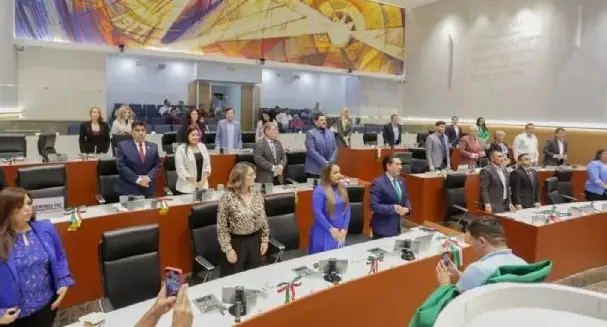
Independent deputy Alejandra López Noriega, former member of the National Action Party (PAN), proposed modifying Sonora’s legislation to include chemical castration as a sentence for the crimes of rape and equivalent rape. It was during the ordinary session of last October 15.
“In Mexico, one in two women has suffered sexual violence and almost one in four has suffered it in the last year. It is really disturbing to know that 40% of violence occurs in schools, 53% occurs at work and that 67% of violence in neighborhoods is sexual in nature. Doubly disturbing is knowing that sexual aggressors are often found inside the houses where the female victims live,” said the legislator, referring to Inegi figures on the subject.
Given this context, López Noriega said that the issue should be discussed from the perspective of the victims and the protection of their rights, not from the angle that refers to the perpetrators: “The proposal that is being presented today seeks to put the victims of sexual abuse and rape, mostly women, children and adolescents, at the center of the discussion and decisions,” she said, and detailed her proposal.
“This initiative seeks that those who are convicted of rape or equivalent rape receive a sanction that ensures, even while serving their time of deprivation of liberty according to the sentence, that they cannot reoffend in this crime. This will be done by sanctioning the perpetrators with the deprivation of sexual desire and capacity for the same time as their prison sentence. To this end, the necessary medical and human procedures will be carried out so that with specialized chemical methods the inhibition of the rapist’s sexual behavior is achieved,” said the deputy.
The measure would have been inspired by other latitudes, since López Noriega herself pointed out that what she proposes has already been developed in countries such as Russia, Poland, South Korea, Indonesia, Moldova, Estonia and the United States. Regarding the latter case, the deputy highlighted that the states of Alabama, California, Florida, Georgia, Texas, Louisiana and Montana represent the advance in the matter.
The legislator also assured that the initiative does not violate the human rights of those found guilty of the crimes indicated, something different from what occurs in Louisiana, where in addition to allowing chemical castration, the possibility of surgical castration is under study, she said.
“The method that is proposed to be used in the state of Sonora is neither surgical nor permanent, it is an extraordinary, proportional, informed, temporary and humane measure in order to ensure the higher principles of access to justice and protection of the rights of the victims,” she concluded.
Source: proceso






